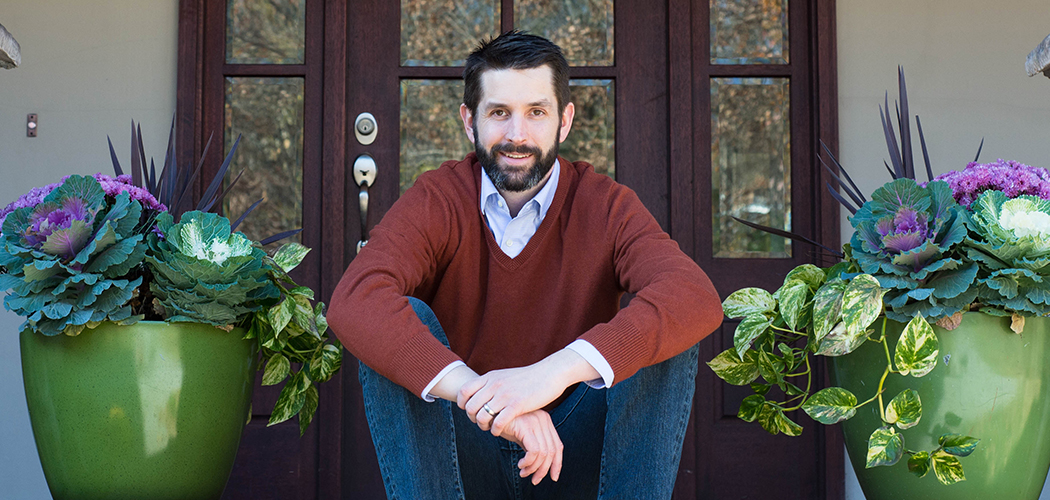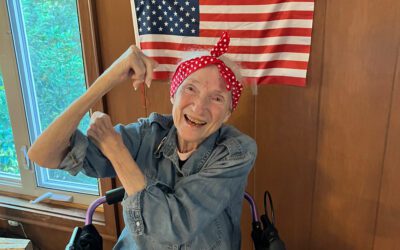[title subtitle=”words: Marla Cantrell
Images: courtesy Seth Haines”][/title]
Seth Haines grew up in Fort Smith, Arkansas, and now lives in Fayetteville with his wife and sons. His first book, Coming Clean: A Story of Faith, was released in late October. This is his story.
I was raised in the South, which is to say I was raised among characters. There was Arthur Larimore, the tee-totaling veteran with a penchant for teaching seventh grade boys the ways of the good Lord, and the ways of a good trigger finger. There was Ann Curtis, the slight woman with the bluish beehive hairdo who barely spoke a word, unless it was during one of her three shifts a day in the church prayer room. There was Sam Phillips, who’d caught a catfish with his bare hand in Doc’s pond, jumped out of a tree stand and rode a wounded deer to the ground, and ate Sriracha by the spoonful for show. (Only one of these Phillips’ stories is verifiable.)
Among the characters in my life, there was none more colorful than my grandfather, George Mouk. My grandfather was a man never at rest, and was equal parts family patriarch, successful businessman, charismatic leader, scratch golfer, house chef, and the consummate North Louisiana conservationist. He was pulled to passion, a unifier, a developer, a solution-oriented and outcome-determinative man prone to tell you “what you ought to do.” And every night, he dulled his obsessive drive, his pent-up energy, and the worries that came with them, with stiff gin drinks.
I remember the botanical scent on his breath, he pulling me into his lap when I was a boy, rocking in an old wicker chair overlooking the bayou. “Sit here, boy,” he’d say, “and let me tell you about my namesake.” St. George was a war hero during the Crusades, he said. A fierce warrior, St. George was pulled toward greatness.
St. George once found a damsel bound in a field, my grandfather told me, she clothed in a wedding dress, bound hand and foot. The maid was to be sacrificed to a dragon, the beast that tormented the girl’s village. No sooner had the maiden declared her plight than the dragon appeared, blue blazes flaring from his upturned snout.
Grandpa Ducky—we called him this on account of the bayou ducks he fed every evening—leaned in, fire on his breath. “St. George was undaunted,” he said. “He charged and lanced the dragon in the heart. He straddled the head of the dragon—roaring and bucking as he was—and with a clean stroke, he separated the beast’s massive skull from his neck.” He paused, let the story settle as the mallards splashed down into bayou water from the western sky. Then, in the cicada crescendo on the banks, he said, “You can slay dragons, boy. You can set things right.”
My grandfather’s storytelling was always marked by the scent of Gordon’s gin, a dry London swill that, when mixed with tonic, tasted like an evergreen forest fire and quinine. Patriarch as he was, noble as he was, when we visited his house, it was the only drink, and when he traveled, he’d bring his own supply in a green ammo crate. It was his survival kit, his overnight stash—a bottle of Gordon’s, pickled onions, a few limes, Schweppes tonic water, and a bottle of Dry Sack sherry. (“You never know when sherry season might sneak up on you,” he’d say with a wink, especially in the days after my grandmother’s passing.) This was his crate of courage, his magic box. It was endearing, part of his persona and our family lore.
There was never a more joyous group than those under the influence of his libations. He was a jubilant imbiber, a loose fellow who’d tell secret stories of the war and breaking codes and young lovers. He’d flirt with the granddaughters-in-law, would tell off-colored jokes in that aw-shucks manner afforded eccentric and accomplished southern elders. It was Gordon’s gin and tonic that most often contributed to these memories, some of my fondest of him.
My grandfather bequeathed me his prominent nose, his flat backside, and his penchant for Gordon’s and Schweppes. We are nothing if not a loyal family. I blame that on our southern roots. For the more initiated drinkers, those of you who elevate the finer things of life over familial identity, perhaps this is an abomination. But in the days when I needed the liquid courage to slay my own dragons, Gordon’s was the courage of choice.
In 2012, my youngest son Titus fell ill with a mysterious disease. At six months, he stopped gaining weight. At ten months, he began losing weight. In his eleventh month, his body began to reject his meals.
We were admitted to Arkansas Children’s Hospital, where the doctors labored to find a solution. As they labored, I labored under the stress that our son might not make his first birthday. There was a dragon of fear in that hospital room, and when I needed to dull the pain and doubt so as to continue the fight, I had a bottle of gin smuggled to the hospital room, and I drank.
The problem, I found, with drinking to dull the pain is this: when the exigency resolved, I was unable to quit drinking. And this was the precarious predicament in which I found myself mired over one year after my son’s discharge from Arkansas Children’s. Whiskey, gin, beer, wine—I drank and drank to avoid dealing with the pain and disappointment of my son’s ongoing, but no longer life-threatening, health-related issues.
Pour a stiff one; drink it down; squelch the anxiety; pour another. This became the rhythm of the day. It was a rhythm that would continue, notwithstanding my wife’s questions: do you think you have a problem? And here’s what any accomplished, talented former-drinker will tell you: all of the nagging questions will be swept aside until the moment is right for the coming clean.
In September of 2013, I slopped into my last good drunk under the arms of a Spanish Oak in Austin, Texas. In the morning that followed, I met a friend, a former alcoholic, in a Methodist church lobby. “Good morning,” she said, to which I responded, “How did you know you had a drinking problem?” Her eyes softened, the smile of a mother eased across her lips, and she said, “You know, don’t you.” It was not a question. It was a revelation.
That was the morning that began my journey into sobriety, a journey that is recorded in my first book, Coming Clean: A Story of Faith. It wasn’t an easy process, this process of coming clean. I suppose, in part, it felt like a betrayal of my heritage, my Grandfather’s genetic predisposition. But more than two years removed, I look back on those early days of sobriety and recognize that it was the beginning of something sacred. It was the beginning of my own heritage, perhaps the genesis of my own character sketch.
My grandfather was right—dragons are slayable creatures. My son’s illness was not the dragon I once thought, though. The dragon was of a more personal sort. It was sneaky. It was habitual. And now, one day at a time, I’m slaying the dragon.
Long live St. George.




